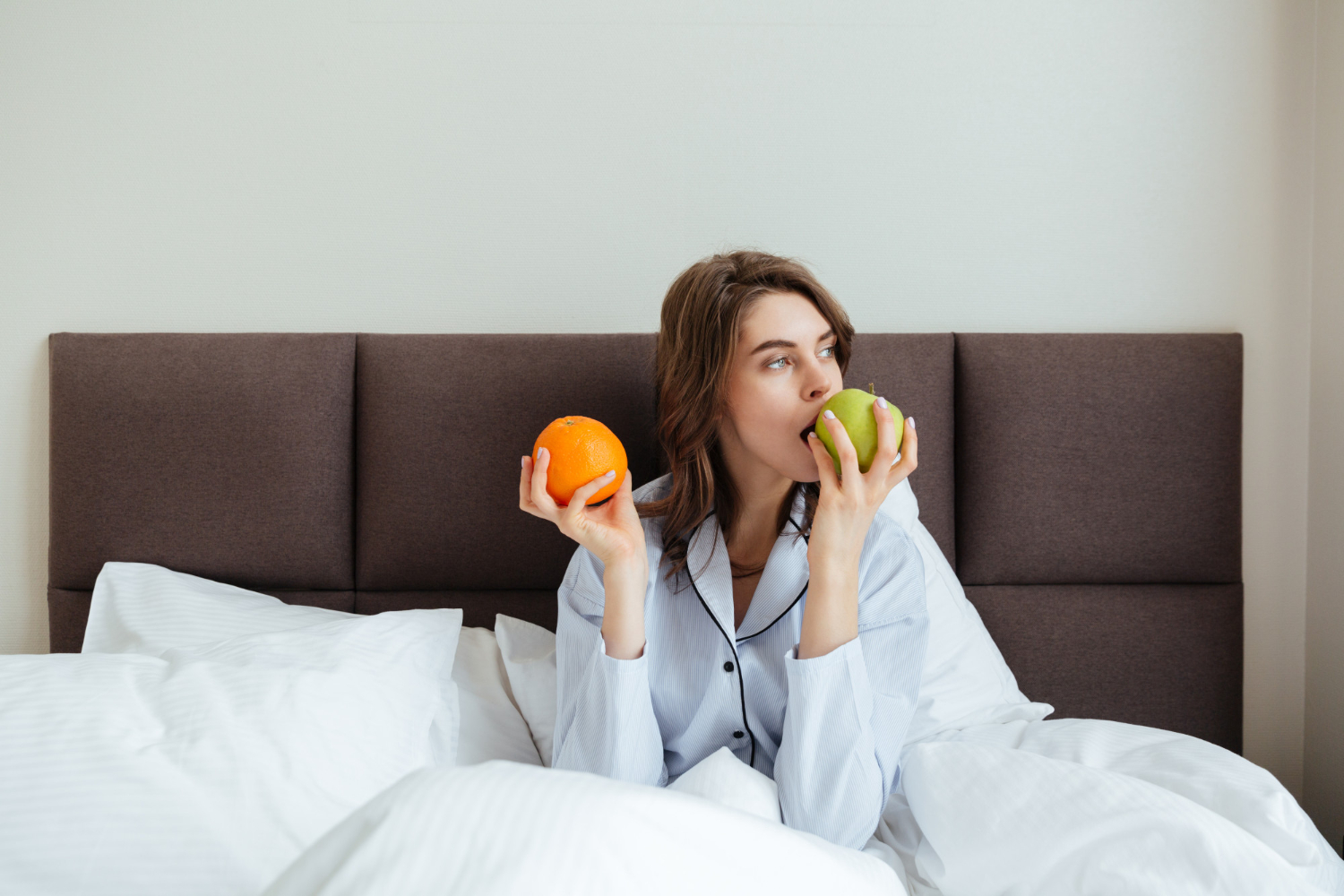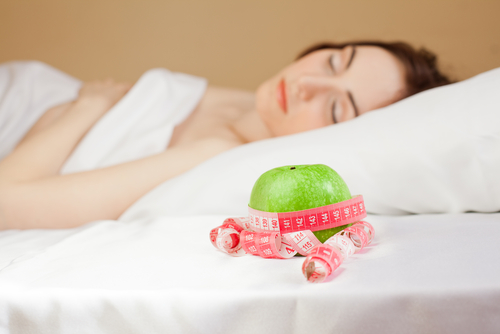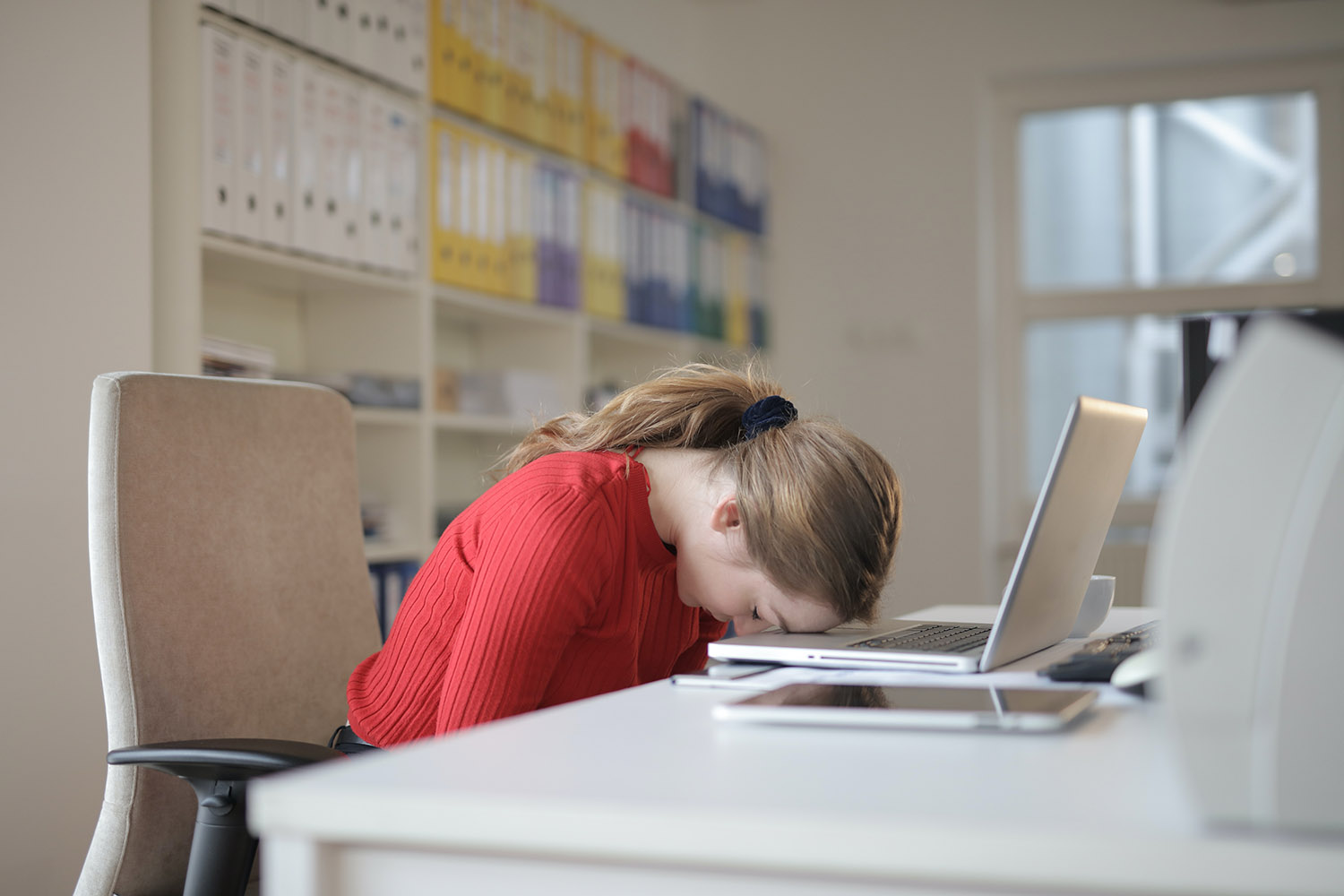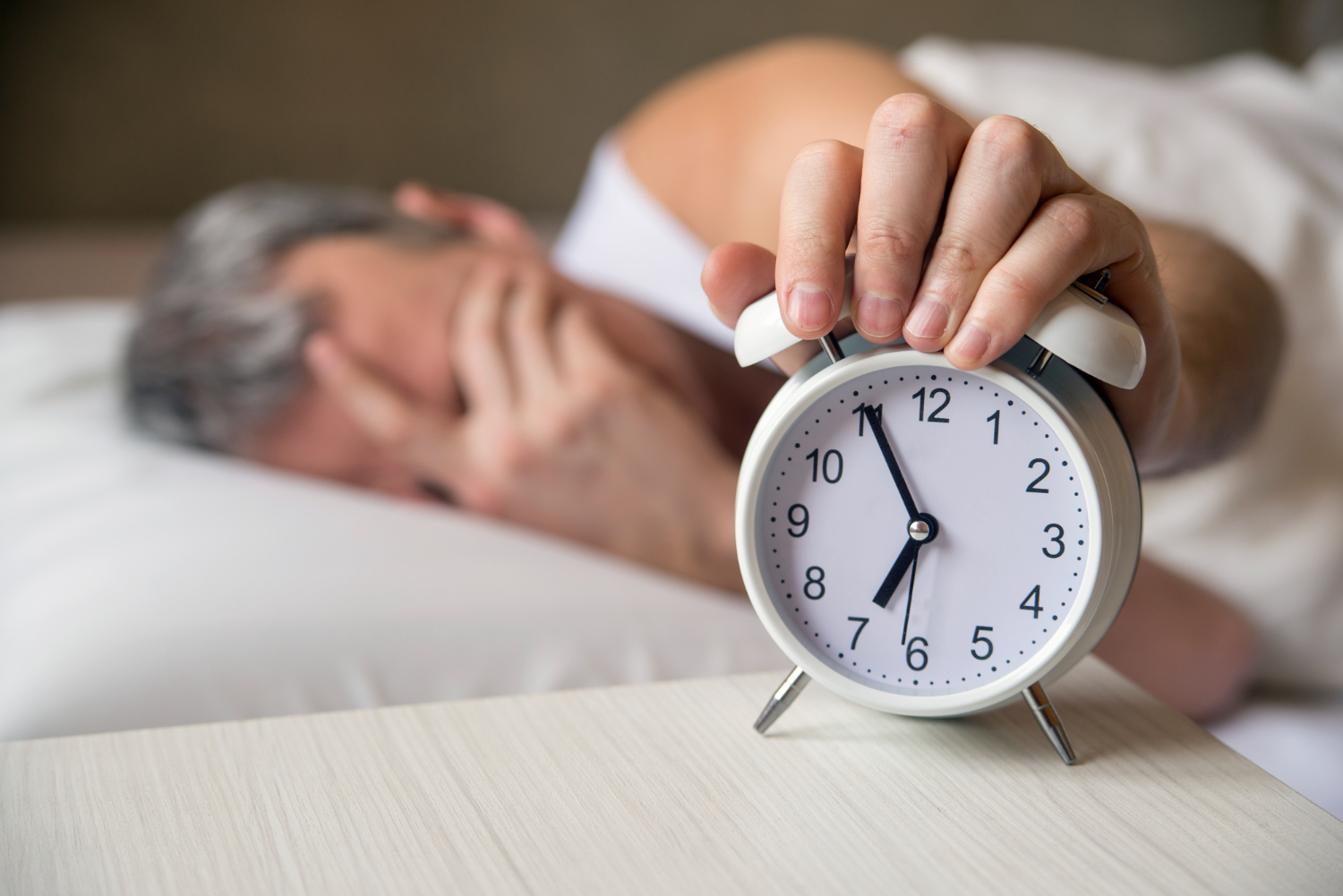Are You Following “The Good Sleep Diet”?

Did you ever wonder why the words “diet” and “lifestyle” are so often put together? Well, it’s because these two words are so closely intertwined. After all, if you started diet – especially if it’s an effective diet that can really make some positive changes in your health and wellness – it becomes your lifestyle.
Once you realize that, you realize that you can adopt a diet that helps you get better sleep, too. Of course, some of this good sleep diet has to do with what you eat. It also has a lot to do with how you eat. And at the end of the day, if you take the principles of a good sleep diet to heart and follow them to the fullest extent that you can, it can help you find a new, revolutionary lifestyle which is full of wonderful sleep!

Morning Phase: Getting a Great Start to Your Day
Phase one of the good sleep diet is to rethink the way you handle your mornings, and your breakfast. For example, tell us if this sounds like you: you wake up in the morning and skip breakfast, or choke down a small, unsatisfying meal. You follow that up next with a stressful rush to work, where you then spend several hours sitting at a tiny desk under unflattering fluorescent lighting. If any or all of these things apply to you, then you need to learn how to change your morning routine to cater to a good sleep diet.
Start by giving yourself enough time in the morning to either make a big breakfast for yourself, or prepare one the night before. Filling your body’s gas tank at the beginning of the day is a great way to give you the energy boost you need to get things off to a good start. You should also try and focus on getting some sort of exercise – especially exercise outdoors – before you head inside and start working. You could try taking up jogging or power walking around your neighborhood, or even doing something as simple as getting to work 10 minutes early and taking a brisk walk around the building. The earlier you can get exposure to natural light during the day, the quicker your body will wipe away the cobwebs and send a “wake up, it’s morning!” Signal to your brain.
Afternoon Phase: Afternoon Delights
The next phase of the good sleep diet is to eat lunch just the right way. Lots of people try to push through the afternoon hours for one of three reasons: either they’re trying to impress their boss by showing off their self-sacrificing work ethic, they’re actually too busy to stop what they’re doing and switch gears, or they’re simply afraid of that post-lunch afternoon crash. Either way, you need to make time for lunch! Behind breakfast, it’s the next most important meal of your entire day.
Also, remember what we said about exercise in the morning? Well, if you can, it’s good to squeeze in a little extra during the middle of the day, too. We understand this can be difficult based on where you live, your climate, the seasons of the year, and whether or not your corporate overlords will allow you to leave the building between 9:00 a.m. and 5:00 p.m. But, again, we can’t emphasize enough the rejuvenating power of a quick walk around the building while the afternoon sun is still high in the sky. It’ll keep your metabolism going so that your body doesn’t slow down to digest your lunch. Plus, that quick burst of beautiful sunlight will zap some extra energy back into your brain. Just don’t forget to wear sunscreen!
Evening Phase: Winding Down (the Right Way)
Food-wise, the evening phase of a good sleep diet may seem to have the least going on; however, this is the phase of your day in which you focus the most on improving the quality of your sleep. For starters, dinner should be your smallest meal of the day. It doesn’t have to be your least important meal of the day, and it doesn’t have to prevent you from sitting down at the dinner table with your family and reconnecting after spending many hours apart. But you do have to make smart food choices, like making sure you have a decent amount of healthy fats and high quality protein on your plate. Spicy foods should be avoided because they could cause painful indigestion. And you shouldn’t have too many carbs because your body will want to burn them immediately for energy. This last-minute energy burst can leave you feeling restless when your head hits the pillow.
We do need to add one small caveat to this, though. Some people simply cannot fall asleep on an empty stomach. And that’s okay. There’s actually a fairly simple solution which could improve your overall quality of rest: a very small snack of equal parts carbohydrates and protein. Half a banana and a glass of warm milk is a good example. The carbs help unlock the tryptophan in the protein, which goes straight to your brain. Once there, it gets converted into melatonin, the sleep hormone.
Of course, night time is the right time to practice the good sleep hygiene habits you learned in one of our previous articles. And if you haven’t read that one yet, we strongly suggest that you do! It contains some valuable tips, tricks, and lessons to help you hack your sleep routine and get better rest.
But most of all, you should definitely think about adding an herbal sleep supplement to your nightly routine. Anything with melatonin, chamomile, hops, and lemon balm will work great. All of these natural ingredients are perfectly safe to use on a nightly basis, and they have a long history of helping people feel drowsy when they need to rest. Best of all, even the highest quality sleep aids don’t require a prescription – you can order them right now from the comfort of your own home and have them shipped quickly to your doorstep. You can hardly have a good sleep diet without a safe, effective, natural nighttime sleep aid. Trust us – we’re the experts!



